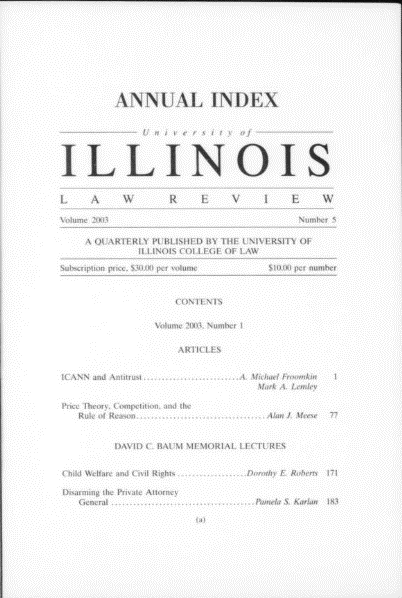From The University of Illinois Law Review:
The Ethics 2000 Commission set out to retain the primary disciplinary and regulatory function of the Model Rules of Professional Conduct and to “fix” provisions only where they were “broken.” The Commission drew on the insight and expertise of an extraordinarily wide assortment of interested parties. But, Susan Shapiro argues, their input on what in the Model Rules was working or broken suffers from what social scientists call “selection bias.” This pool of self-selected advisors and commentators, however diverse, is unrepresentative of the legal profession as a whole and the varied settings in which lawyers practice and in which professional responsibility is enacted day to day. Participants had a stake in the debate—axes to grind, constituents to serve, interests or ideologies to promote. This unrepresentative patchwork of self-selected informants, however extensive the network or prescient its members, could not possibly substitute for solid empirical evidence on the actual practices of lawyers.
Shapiro argues that empirical research might have informed the Commission not only which Model Rules are working and which are not, where they work best and why, and how to engineer incentives for compliance or self-regulation, but also have provided some guidance about how to fix those rules that are “broken” and at what costs and consequences.
Moreover, Commissioners might have assessed the potential impact of changing an ethics rule by examining empirically the experience of a jurisdiction in which the prospective rule change had already been implemented. Drawing on her research on how Illinois law firms deal with conflicts of interest, Shapiro illustrates how rigorous empirical data might have been used to inform the contentious debate over screening. The issue is not whether clients can be protected adequately if firms are allowed to screen a lawyer hired laterally from another firm without seeking client consent. Instead, the data suggest, one effect of liberalizing the law may well be that, ironically, clients are better protected and confidentiality even more inviolate in jurisdictions that allow screening without consent than those that do not.

